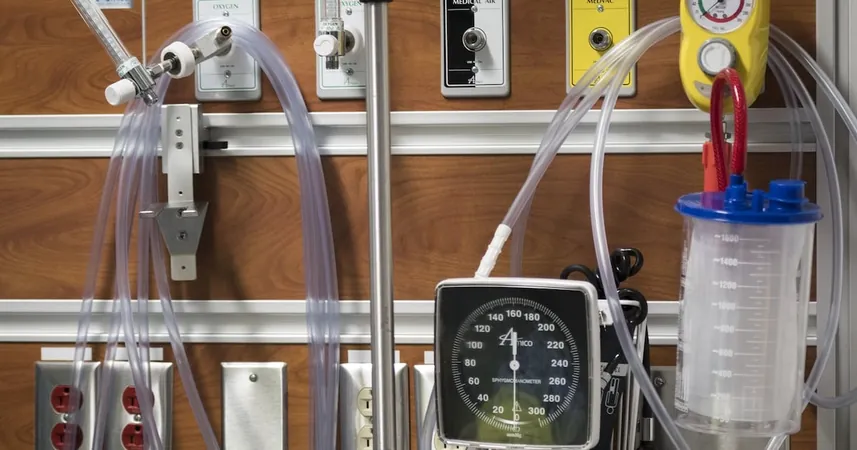
Surge in Walking Pneumonia Cases Alarmingly Spikes in Canada – What About Ontario?
2024-11-24
Author: Michael
Walking pneumonia, or mycoplasma pneumoniae, is becoming a growing concern across Canada, particularly among children. As emergency rooms report an uptick in these cases, people are asking: Is Ontario experiencing the same trend?
This milder form of pneumonia manifests through common symptoms like cough, fever, and fatigue. One critical note is that cases of walking pneumonia are not monitored by the Public Health Agency of Canada (PHAC) or Public Health Ontario (PHO), as they fall outside of reportable diseases. This makes it challenging to get an accurate picture of the situation.
Dr. Allan Grill, chief of family medicine at Markham Stouffville Hospital, highlighted the alarming rise in cases, especially among children under five, a demographic not typically associated with this illness. "Usually, mycoplasma pneumonia tends to affect school-age children. However, we've been seeing more instances in even younger demographics," he stated. Just recently, Dr. Grill diagnosed three children with pneumonia in a single week, backed by chest X-ray confirmations.
Experts point to the COVID-19 pandemic as a contributing factor to this surge. "During the height of the pandemic, many children lacked exposure to common bacteria and viruses, leading to a whole generation that has not built up immunity to infections like mycoplasma pneumonia," Dr. Grill explained. This has resulted in rapid cycles of bacterial outbreaks, with healthcare professionals seeing an increased number of related cases.
Tammy DeGiovanni, senior vice president of clinical services at the Children’s Hospital of Eastern Ontario (CHEO), noted that their emergency department typically serves around 150 patients daily, but that number has dramatically increased to between 200 and 250 recently. This alarming trend mirrors reports from the U.S., where the Centers for Disease Control and Prevention (CDC) flagged a similar rise earlier this year.
Additionally, while hospitals such as Michael Garron Hospital and Toronto's Hospital for Sick Children could not provide exact figures, both acknowledged a noticeable increase in pneumonia cases compared to last season.
So, what should parents watch for? Dr. Grill advises that if children display respiratory symptoms like a persistent cough, fever, or fatigue, they should consult their primary care provider. Signs of a serious bacterial infection, such as a fever lasting more than five days, should not be taken lightly and warrant prompt assessment.
Mycoplasma pneumonia spreads easily through respiratory droplets from coughs or sneezes. "Crowded environments like homes, schools, and daycares facilitate the transmission of the virus," Dr. Grill warned. To help prevent the spread, he urges frequent hand washing, sneezing into sleeves, and staying home while sick. Generally, once a child’s fever subsides for 24 hours and they’re feeling better, they can return to their regular activities.
Furthermore, keeping children up-to-date with vaccines, including flu shots, is critical. Dr. Grill reinforced the importance of vaccinations, stating, "Preventing the initial infection helps reduce the risk of secondary bacterial infections like mycoplasma pneumoniae."
As this health crisis unfolds, parents and caregivers are encouraged to remain vigilant and proactive in seeking medical attention for their children while also adhering to recommended preventative measures.









 Brasil (PT)
Brasil (PT)
 Canada (EN)
Canada (EN)
 Chile (ES)
Chile (ES)
 España (ES)
España (ES)
 France (FR)
France (FR)
 Hong Kong (EN)
Hong Kong (EN)
 Italia (IT)
Italia (IT)
 日本 (JA)
日本 (JA)
 Magyarország (HU)
Magyarország (HU)
 Norge (NO)
Norge (NO)
 Polska (PL)
Polska (PL)
 Schweiz (DE)
Schweiz (DE)
 Singapore (EN)
Singapore (EN)
 Sverige (SV)
Sverige (SV)
 Suomi (FI)
Suomi (FI)
 Türkiye (TR)
Türkiye (TR)